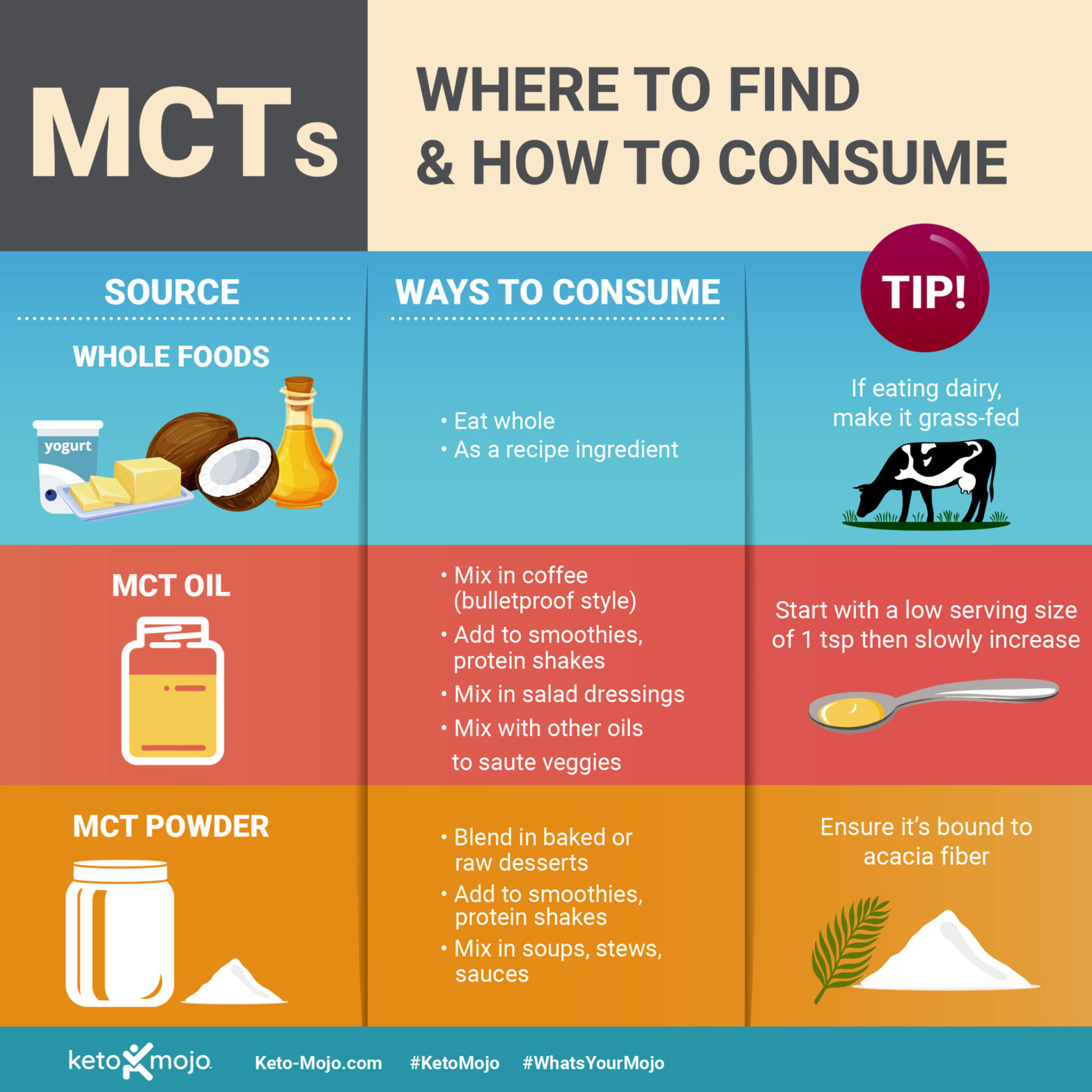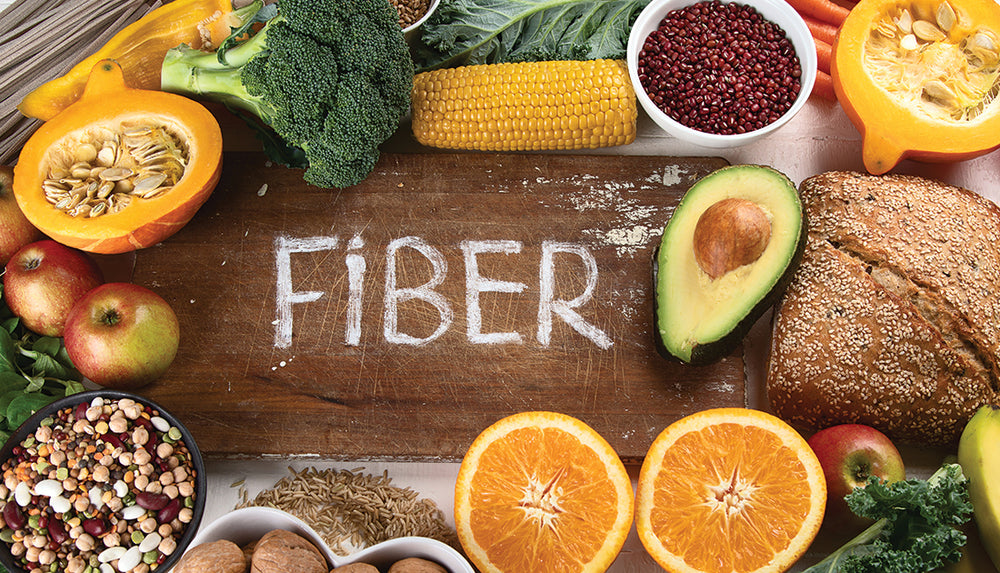Top MCT Sources: Foods To Boost Energy & Keto Benefits
Could a simple dietary tweak hold the key to unlocking sustained energy, improved cognitive function, and a healthier metabolism? The answer might lie in a lesser-known class of fats called Medium-Chain Triglycerides (MCTs), found naturally in various foods and increasingly recognized for their remarkable health benefits.
The realm of nutrition is constantly evolving, with new discoveries reshaping our understanding of what constitutes a healthy diet. For years, saturated fats, a primary component of MCTs, have been viewed with suspicion. However, emerging research is shedding new light on their potential benefits, particularly when derived from specific sources.
These potent compounds, often praised for their rapid absorption and conversion into energy, are gaining traction in the wellness community. But what exactly are MCTs, and where can we find them? This exploration will delve into the world of MCTs, uncovering their origins, the foods richest in these beneficial fats, and how they can be incorporated into a well-rounded diet.
- Debunked The Michael Lavaughn Robinson Conspiracy Theory On Michelle Obama
- Chamath Palihapitiya Key Insights Contact Info Get The Latest
Before fully grasping the benefits of MCTs, it is essential to understand their origins. The backbone of an MCT is a triglyceride, a type of fat molecule composed of three fatty acids attached to a glycerol molecule. The key differentiator of MCTs is the length of the fatty acid chains. They have a "medium" chain length, typically ranging from 6 to 12 carbon atoms. This unique structure allows MCTs to be processed differently by the body compared to long-chain triglycerides, which are more prevalent in the typical diet.
In palm oil, the MCTs primarily consist of lauric acid, caprylic acid, and capric acid. These components are the building blocks for the many functions they perform, including the production of ketones. These ketones are what make MCTs so popular in ketogenic diets. These are the primary fuels to be used during these diets.
Coconut oil, a readily available source of MCTs, contains over 60 percent of these beneficial fats. Palm kernel oil also boasts a high concentration, with over 50 percent MCTs. These sources provide a significant advantage to those hoping to include these fats in their everyday routine.
- Kaitlyn Krems Onlyfans Leaks What You Need To Know Details
- Cleen Rock One Before Fame Wife And More Unveiled
However, not all MCTs are created equal. When considering an MCT food list, the carbon chain lengths of C8 (caprylic acid) and C10 (capric acid) are generally considered to provide the most efficient conversion to ketones. Thus, the focus should be on oils that are higher in these components.
The beauty of MCTs lies in their versatility. They are colorless, odorless, and remain liquid at room temperature, making them easy to incorporate into various foods and beverages. Whether added to coffee, smoothies, or meals, MCTs offer a convenient way to enhance energy levels, cognitive function, and metabolic health naturally.
While the benefits of MCTs are compelling, its important to address some common questions. Can you get enough MCTs from food alone? Are there any side effects to consuming MCTs? These are all essential considerations. While incorporating foods rich in MCTs is a great starting point, the concentration of MCTs in these foods can vary. Therefore, individuals may need to supplement with MCT oil to achieve the desired intake. Furthermore, while MCTs are generally considered safe, some individuals may experience digestive issues when first starting to consume them.
Here is an outline for how to include MCT oils in your daily routine:
- Use it in cooking, baking, or smoothies.
- Add a spoonful of coconut oil to your morning smoothie.
- Use MCT oil in your coffee instead of regular creamer.
- Use coconut oil or palm kernel oil for cooking and salad dressings.
Several natural food sources provide MCT oils. Common foods containing high MCT levels include oils, dairy products, and certain seeds and nuts, making them accessible for a variety of diets. Including these foods in your diet can help you reap the benefits of MCTs naturally.
Here are some top choices for food sources:
- Coconut oil
- Palm kernel oil
- Butter
- Cheese
- Yogurt
- Certain types of milk
- Human breast milk
MCT oil can be found in a variety of foods, including the ones listed above. It can also be found in some processed foods, such as energy bars and protein powders.
The versatility of MCTs makes them easy to integrate into an existing diet. For those following a ketogenic diet, MCTs are particularly valuable, as they are rapidly converted into ketones, providing a quick and efficient source of energy. Theyre the top foods that increase ketones on a ketogenic diet. This can help support the body's transition into ketosis and improve overall metabolic health.
This makes palm oil a versatile ingredient for those on a ketogenic diet or anyone looking to boost their energy levels naturally.
In a world often filled with complex dietary advice, MCTs offer a refreshing simplicity. While saturated fat has gotten a bad rap over the years, the unique properties of MCTs make them a compelling addition to a health-conscious lifestyle. By understanding the food sources, the benefits, and the best practices for incorporating them into your routine, you can unlock the potential of these remarkable fats and experience the benefits for yourself.
Here's a quick list of foods that contain MCTs, shown as a percentage of total fats:
With rex.fits calorie tracking feature, you can monitor your dairy consumption to ensure it fits within your nutritional plan.
Explore sample recipes and learn more about natural ingredients that can enhance your diet and add variety to your daily supplementation.
- X20shelby Stanga Accident What Happened To The Ax Men Star
- Explore Extreme Gore Videos Uncensored Reality Discover Now

What Is MCT Oil & How It Can Help with Keto Diet? KETO MOJO

The Complete Guide to MCTs (Medium Chain Triglycerides)
MCT Oil Vs Powder What You Need to Know (And How to Choose)